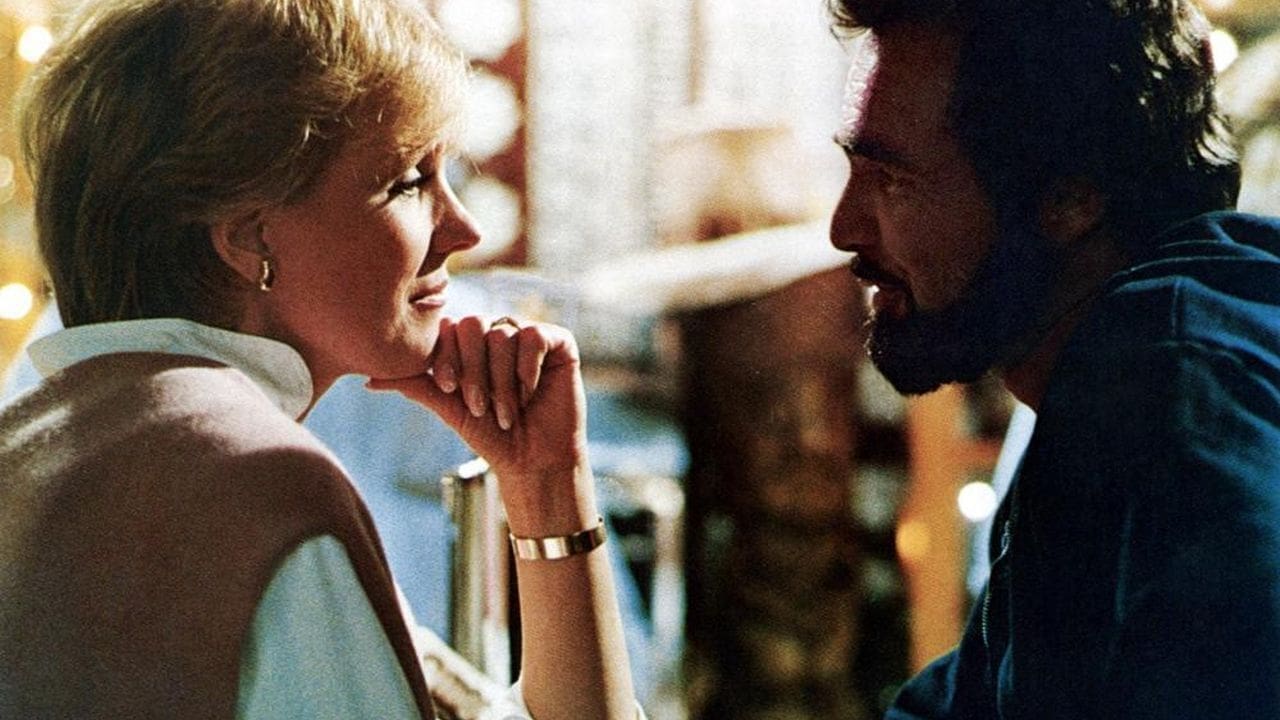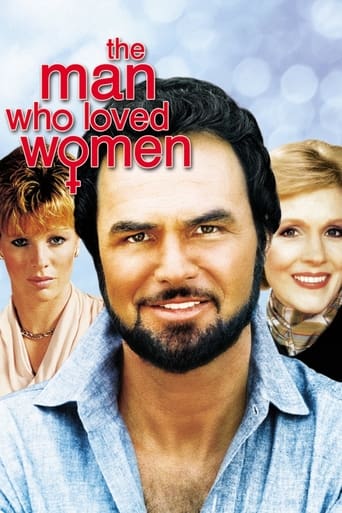

Most undeservingly overhyped movie of all time??
... View MoreA lot of fun.
... View MoreThe film never slows down or bores, plunging from one harrowing sequence to the next.
... View MoreLet me be very fair here, this is not the best movie in my opinion. But, this movie is fun, it has purpose and is very enjoyable to watch.
... View MoreThe many women of sculptor David Fowler (Burt Reynolds) have gathered for his funeral. Among them is his psychiatrist Marianna (Julie Andrews) who recounts the story of his womanizing. He was living with Courtney Wade but he became enamored with a pair of legs. He chased the legs to Agnes Chapman (Marilu Henner) but she claimed that the legs are actually her cousin. There's Nancy who he saved from prostitution and put to work as one of his helpers. There's Louise (Kim Basinger), the wife of rich Texan Roy Carr (Barry Corbin). Louise shoots Roy and David has to testify in her trial. It's a long line of women and Marianna could be next.This is a remake of a French film from director Blake Edwards. I'm sure the French original had an art house appeal. Edwards has no such cushion to work with here. In the end, not all of the women are compelling. The least appealing is probably Basinger. Reynolds is not that much better. He may be a sex symbol back in the day but his persona lacks an intellectual aspect that is required by this role. There are a few intriguing stories but these women are dropped all too quickly. His story is not compelling.
... View MoreIt is true that this re-make does not measure up to the French original, but it is still not half as bad as some reviewers make it out to be. In fact it is quite good if you try to disregard the more "American" details. It starts out with a funeral and works its way back from there. Reynolds is enough of a hunk to make the story plausible and Julie Andrews was never more beautiful. All thruout the film, Blake Edwards succeeds in maintaining an infinitely "sad" note, which works excellently and undoubtedly adds to the quality of the film. 6 out of 10 points.
... View MoreBlake Edwards in the Sixties was an amazing director, with a strong visual flair. I mean he directed "Breakfast at Tiffany's", "Days of Wine and Roses", and "An Experiment in Terror"! But somewhere in all that Pink Panthering he did in the Seventies he lost that visual flair and became boring. The only film in the last thirty years that showed any of the old panache was "Victor/Victoria". It's like there are two Blake Edwards.That's not to say that this film is terrible - it's just that I think he could have done so much better. It's so dull to look at - despite the presence of his enchanting wife Julie Andrews, and one of Burt Reynolds' best performances. Also of note is a very young Kim Basinger displaying a strong flair for comedy. But Edwards' pacing of the action is so slow and ponderous that the moments of slapstick comedy seem completely incongruous and fall completely flat.Come on Blake - give us some more of that old magic! I know it's still in you.
... View MoreTHE MAN WHO LOVED WOMEN begins with a sculptor roaming around LA trying to find out what makes women tick. The sculptor is played by Burt Reynolds, one of the biggest movie stars in the world, so I guess the women will pay attention. Actually, the movie begins with his funeral and we see woman after woman in all shapes and sizes, roaming up the cemetery grass to pay tribute to this guy.Now any movie with an opening like this had better feature one helluva guy so we immediately cut to the scenes of Burt seducing woman after woman, while providing some tender advice on life to keep them warm when he's gone in the morning. I really liked Burt Reynolds performance in this movie. He shows in this movie that when he wants to he can be a fine actor. We know Burt Reynolds has an amazing screen presence but it's nice to see him in a movie where he doesn't wink at the camera to show us how much fun he's having. His scenes with the feminist shrink(Julie Andrews) are funny as Reynolds exhibits every male symptom in the book. The women are Cynthia Sikes, Marila Henner and Kim Basinger to name a few, and rest assured that they're all(especially Basinger)very beautiful.If the movie had stayed true to this idea it might've been special.but it degenerates into a series of three's company set ups and grows tired. After Basinger stirs Reynolds interest they have a romp in her husband's condo. The husband arrives and Reynolds must lurch around. I couldn't count how many scenes there were like that. It's at this point we realize the movie isn't going to be as incisive as it promised. It's silly how Reynolds keeps getting into the same situation with the jealous husband and not very funny either, not even when he say, glues his hands to the steering wheel.Another major problem is the chemistry between Reynolds and Andrews. There's no heat between them and I suspect that maybe they didn't get along with each other on the set. This isn't the type of a man she'd go out with, canon of ethics aside. It's awkward at the end when Andrews drops everything to join Reynolds on vacation when we don't even believe he's gotten to first base. I can't quite recommend THE MAN WHO LOVED WOMEN, it's just not true to itself. The movie introduces us to an interesting man looking to make real discoveries and ends up with a bunch of people who aren't right for each other.DGSTAR STAR (out of four)
... View More